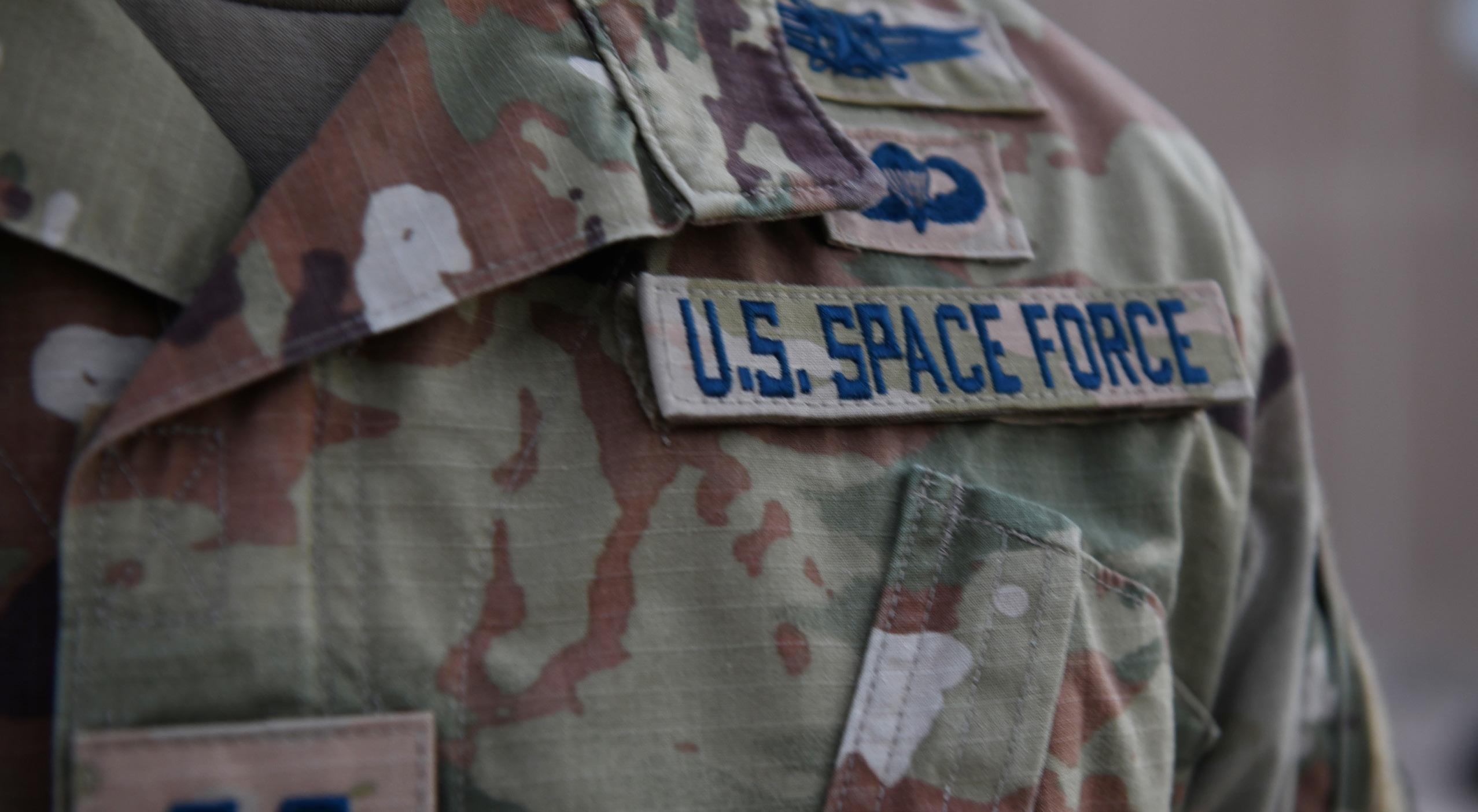
4 minute read
Empowering Guardians and Their Families: Current Challenges
What We’re Working On
Space Force, huh? So that’s a real thing?
You mean like…Star Wars?
Wasn’t that a television show?
If you’ve donned a Space Force uniform in public or proudly worn USSF apparel in your communities, you’ve likely gotten some version of this question. It can be frustrating, particularly for those who have been working in the career field before the standing up of the service.
“People don’t always realize that Space is not new; it’s been around for decades to support space missions,” said Aimee Selix (see “Making a Difference” on page 10). “People don’t always realize how we support all of the other branches.”
It’s not a joke. It’s not science fiction. It’s a service that is provided to the entire world.
More than in other services, Guardian families are being called on to serve as ambassadors for their service branch, advocating and educating others on the importance of the USSF. How are we preparing them to have those conversations in the communities where they live, work, and play?
“We want all members of the USSF including families to start those conversations and create opportunities to educate the broader public,” said Jennifer Saltzman, spouse of Gen. B. Chance Saltzman, Chief of Space Operations. “Something as simple as wearing a USSF T-shirt in an airport can start a conversation. Then we want to make sure the USSF members and families have access to the information they need to talk meaningfully about the Service.”
“No one can tell our story better than our Guardians and family members...we count on them to spread the word enthusiastically about our critical role.”
Selix’s Guardian Spouse Candid Conversations has taken on the challenge, hosting Conversations that discuss topics like “Why the Space Force Exists” and focus deeper on Space Delta 1, the impact of Space capabilities, and the threats faced. Active-duty Guardians serve as guest speakers to help explain issues and answer questions from Guardians’ spouses.
Connected and informing families of new Guardians is also being addressed by 1st Delta Operations Squadron (1 DOS). As part of the graduation ceremonies for basic military training (see “Current Successes” on page 8) Guardians are provided with two pins to present to loved ones, marking them as USSF family. They are provided a QR code where they can view the patching ceremony and learn more about what their Guardian will be doing after graduation, as well as connect them to the Guardian One app. The family pins were made available through a United Forces and Families grant.
“As these people return to their communities, wearing their pins proudly and sharing on social media, they become advocates for the service,” said USSF 1st Delta Operations Squadron Commander Maj. Clinton J. Emry. “But they don’t always know what they do.”
“We share with them ‘This is what your loved one has been doing. This is what they signed on to do.’”
For those looking for a resource to share with interested audiences, earlier this year the USSF Public Affairs team developed a Space Force 101 guide and briefing. Providing a useful overview of the service branch, the guide covers the history of the military in space, the mission and organization of the USSF, and information on ranks, locations, functions, and official seals, symbols, and motto.
So next time you get the question, you’ll be prepared to say, “Yes, the Space Force is a real thing. Let me tell you more about it.”
This article was written by Nicole Murray, the spouse of an Active Duty U.S. Space Force Guardian deeply committed to serving military families. You can read her full bio and the complete edition of United Forces & Families ENGAGE: Empowering Guardians and Their Families here.








